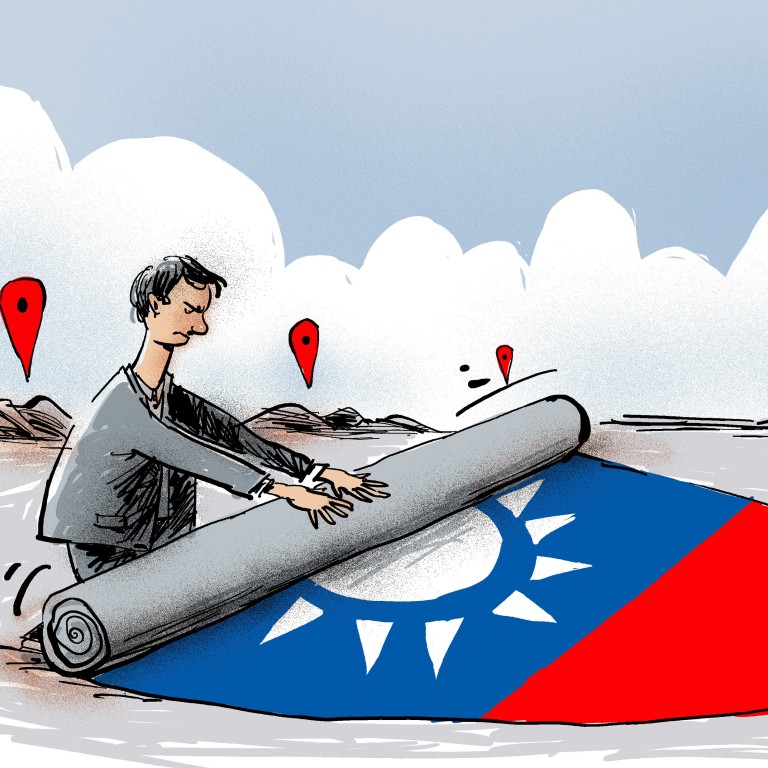
China’s salvo at Taiwan’s economy may or may not hit home, but a travel curb is just the start
- Beijing’s ban on solo travel visas to Taiwan is aimed at hurting the island’s economy and in turn damaging President Tsai Ing-wen’s re-election bid
- Taiwanese voters are being pushed to decide which is more important: politics or economics
Is China’s ban on solo travellers to Taiwan part of a plan to “interfere” with the island’s upcoming presidential and legislative elections? For incumbent Taiwanese President Tsai Ing-wen, how will the travel ban play into her narrative of a bullying China?
Hu Xijin, editor in chief of Global Times, another Beijing government mouthpiece, wrote that Tsai's government has “trampled on cross-strait relations for a considerable time, constantly strengthening its opposition stance against the mainland, and actively acted as a bargaining chip for the United States to suppress mainland China”. Hu asked: “Should tourism be a weapon? On the surface of it, it shouldn’t be. By no means had China ever publicly imposed ‘tourism sanctions’.”
This is the first time that Beijing has targeted independent travellers to Taiwan. Since Tsai took office in 2016, mainland tourist numbers have declined from a peak of 4.18 million in 2015 to 2.7 million in 2018 – which the industry attributes to China’s informal sanctions reducing group tours.
The number of Southeast Asian tourists, who have enjoyed visa waivers to Taiwan since 2016, has risen for three consecutive years, surging 32 per cent last year to 2.43 million. However, the average Southeast Asian visitor stays for 4.12 days and spends US$802 per trip, compared to 8.6 days and US$2,300 for the average mainland visitor. This means the surge in Southeast Asian arrivals still leaves an estimated consumption shortfall of US$963 million annually.
Beijing is using Chinese tourists to inflict economic pain – but does it work?
Also, the Taiwan Tourism Development Association expects about 700,000 fewer Chinese tourists in the next six months, spelling a loss of US$1.61 billion or roughly 0.27 per cent of Taiwan’s gross domestic product last year. KGI Securities sees Taiwan’s GDP dropping by 0.2 percentage points.
As long as the DPP pushes the “red scare” as a hot-button issue, I expect Han and his Kuomintang comrades to maintain a delicate distance from Beijing, despite advocating closer business and political ties. In fact, the Kuomintang has called for Beijing to “not restrict private exchanges due to short-term changes in political conditions, thus affecting the long-term and stable development of cross-strait relations”.
Now more than ever, Hong Kong is key to Taiwan unification
As China Daily observed, the travel ban “may be just the first of a series of moves”. Taiwanese voters will need to decide which is more important: the economy or their ideology.
Chiu-Ti Jansen, with advanced degrees from Yale and Columbia, is the founder of multimedia platform China Happenings and a former corporate partner of international law firm Sidley Austin
Correction: An earlier version of the article stated that the number of Southeast Asian tourists in Taiwan was roughly two-fifths of mainland Chinese tourist numbers. This is incorrect. The error was introduced during editing.

